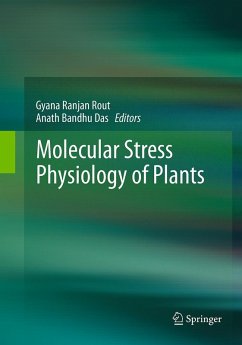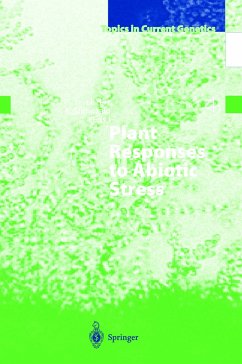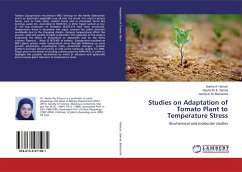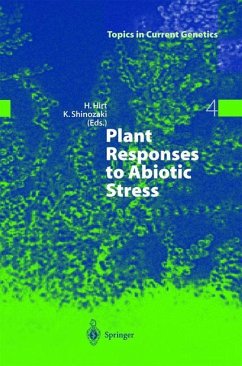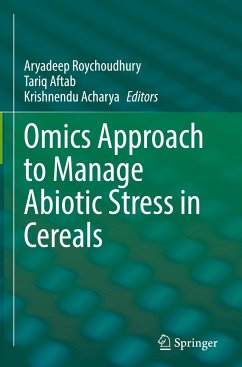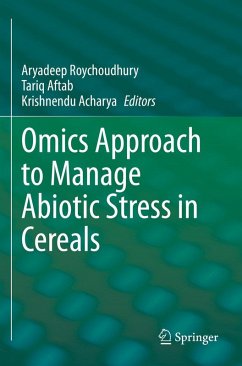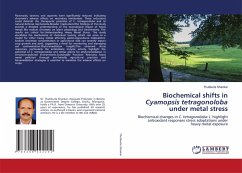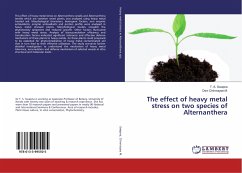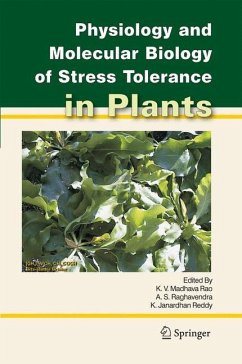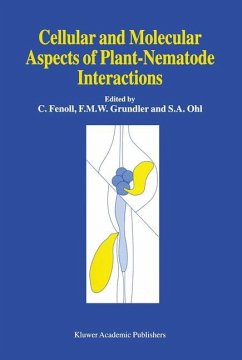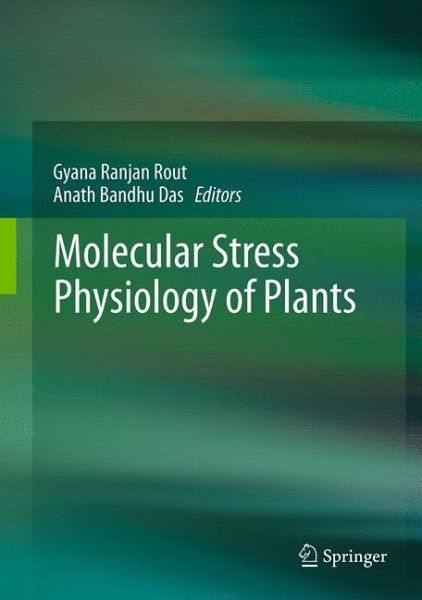
Molecular Stress Physiology of Plants

PAYBACK Punkte
76 °P sammeln!
Crop growth and production is dependent on various climatic factors. Both abiotic and biotic stresses have become an integral part of plant growth and development. There are several factors involved in plant stress mechanism. The information in the area of plant growth and molecular mechanism against abiotic and biotic stresses is scattered. The up-to-date information with cited references is provided in this book in an organized way. More emphasis has been given to elaborate the injury and tolerance mechanisms and growth behavior in plants against abiotic and biotic stresses. This book also d...
Crop growth and production is dependent on various climatic factors. Both abiotic and biotic stresses have become an integral part of plant growth and development. There are several factors involved in plant stress mechanism. The information in the area of plant growth and molecular mechanism against abiotic and biotic stresses is scattered. The up-to-date information with cited references is provided in this book in an organized way. More emphasis has been given to elaborate the injury and tolerance mechanisms and growth behavior in plants against abiotic and biotic stresses. This book also deals with abiotic and biotic stress tolerance in plants, molecular mechanism of stress resistance of photosynthetic machinery, stress tolerance in plants: special reference to salt stress - a biochemical and physiological adaptation of some Indian halophytes, PSII fluorescence techniques for measurement of drought and high temperature stress signal in crop plants: protocols and applications, salicylic acid: role in plant physiology & stress tolerance, salinity induced genes and molecular basis of salt tolerance mechanism in mangroves, reproductive stage abiotic stress tolerance in cereals, calorimetry and Raman spectrometry to study response of plant to biotic and abiotic stresses, molecular physiology of osmotic stress in plants and mechanisms, functions and toxicity of heavy metals stress in plants, submergence stress tolerance in plants and adoptive mechanism, Brassinosteroid modulated stress responses under temperature stress, stress tolerant in plants: a proteomics approach, Marker-assisted breeding for stress resistance in crop plants, DNA methylation associated epigenetic changes in stress tolerance of plants and role of calcium-mediated CBL-CIPK network in plant mineral nutrition & abiotic stress. Each chapter has been laid out with introduction, up-to-date literature, possible stress mechanism, and applications. Under abiotic stress, plant produces a large quantity of free radicals, which have been elaborated. We hope that this book will be of greater use for the post-graduate students, researchers, physiologist and biotechnologist to sustain the plant growth and development.





